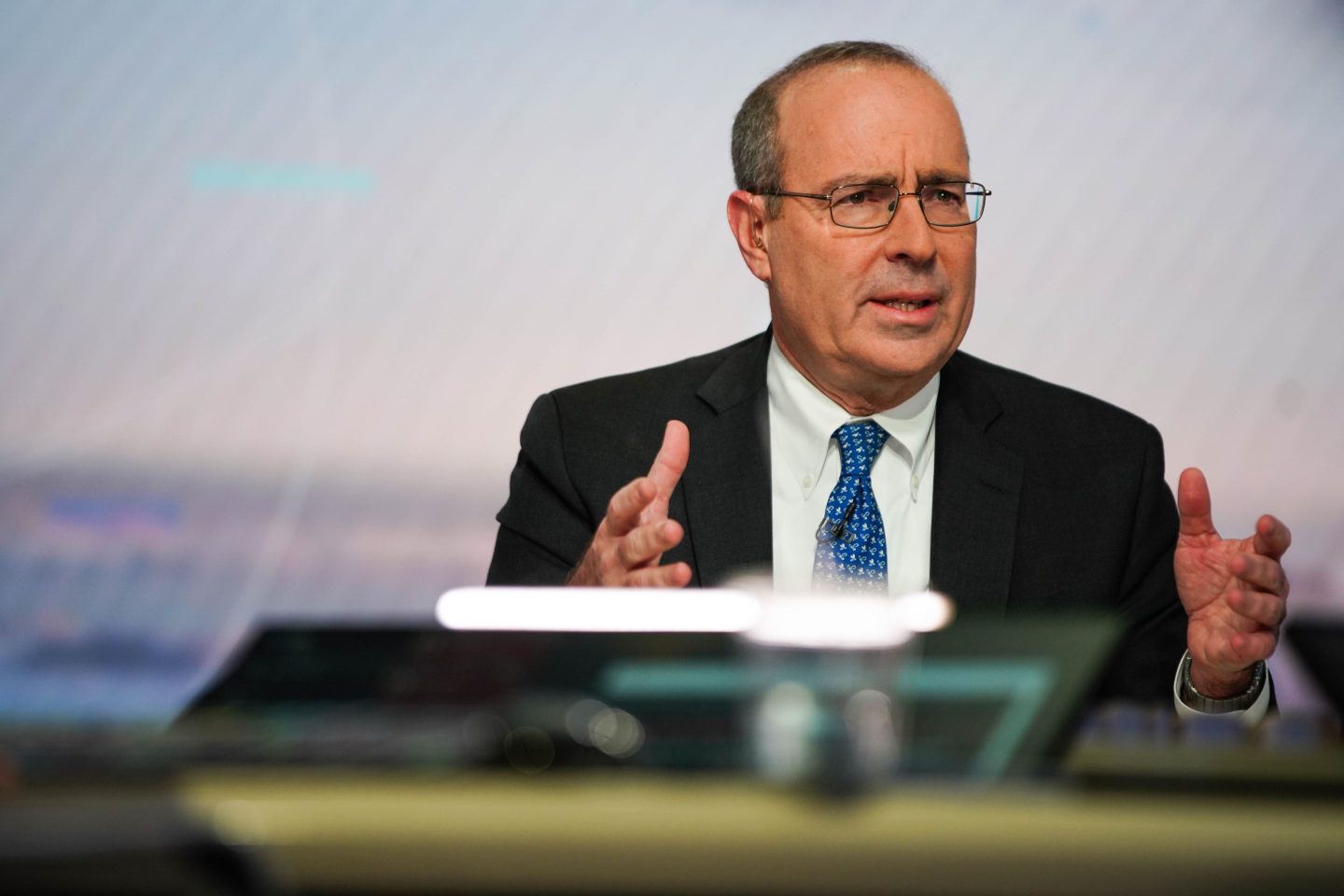Good morning. President Trump announced on Wednesday a 90-day pause on the “reciprocal” tariffs announced last week. During the time-out, a 10% universal tariff will be in effect. However, tariffs on China would not be paused, rising instead to 125% and escalating the standoff between the world’s top two powers. Tariff uncertainty, though, has played a major role in CFO scenario planning.
“I think planning 10 years ago was a lot more certain than planning is today,” Tom Barkin, president and CEO of the Federal Reserve Bank of Richmond, told me following the Economic Club of Washington, D.C.’s event on Wednesday.
Barkin began his current role in 2018. Before that, he had a 30-year career at McKinsey, where he became CFO and also served as chief risk officer. I asked Barkin if he had any advice for finance chiefs during these uncertain times.
“I think if you’re going to next year’s plan, you’ve got to think through a wider range of scenarios,” he said. A prime example is Wednesday’s shift in the tariff landscape, he noted. “Resilience, that’s a big point to think about and optionality. I think that’s the world we seem to be in,” Barkin said.
During a fireside chat with Barbara Humpton, chair of the Economic Club Global Initiative and president and CEO of Siemens USA, Barkin shared some of the leadership lessons he learned while at McKinsey, such as collaboration is key.
Barkin said he ran the southern office for 10 years. “If you want to get things done nationally, you have to talk to the West Coast office and the New York office, and people have different views,” he explained.
His takeaway: “Most people aren’t really all that difficult; they just want to be listened to.”
There’s a big difference in just trying to get things done, as opposed to “trying to understand where everyone’s coming from and then finding a path forward that works for the greater majority,” he said.
Regarding the economy, Barkin said that just three months ago unemployment was 4.1%, inflation was down to 2.6%, the GDP grew 2.5% last quarter, and business optimism spiked after the election. “Seemed like things were in pretty good shape,” he said. “I should probably stop there, but I’ll keep going because what’s happened since then is there’s just this deep fog of uncertainty that’s surrounding businesses.”
He’s monitoring consumer spending or “precautionary behavior” to indicate any impending downturn. “That’s why I’m looking at the weekly spend data, which you can get from the various credit card companies to see whether you’re seeing any signals there,” he said.
There’s a lot of talk when the equity market corrects, but equity market correction is not the thing that leads to a consumer pullback, Barkin said. You have to look at the complete picture, he said.
Sheryl Estrada
sheryl.estrada@fortune.com
Leaderboard
Carl T. “Pat” Schultz was appointed CFO of Microvast Holdings, Inc. (Nasdaq: MVST), a provider of advanced battery technologies. Schultz brings over 20 years of financial leadership experience. He spent 10 years at Air Liquide, serving most recently as CFO of North America. Before Air Liquide, he was at Genworth Financial serving in various accounting and financial leadership roles.
Doug Shirley was appointed CFO of ScionHealth, effective immediately. Shirley brings over 25 years of experience. He joins ScionHealth from PathGroup, where he served as EVP and CFO. He has held several finance leadership positions in the health care industry, including CFO of National Group and Head of Enterprise Revenue Cycle Management at Surgery Partners, as well as senior executive vice president and CFO at The Cooper Health System.
Big Deal
There’s a growing divide between executive leadership and employees in the U.S. workforce, according to FlexJobs’ Employee and Executive Divide Survey. More than a quarter of workers say they feel less loyal to their employers. Meanwhile, 80% of workers said CEOs are overpaid for their jobs.
When asked to evaluate executive capabilities, 69% of respondents said that they do not believe the CEO of their company could do their job for a week. Less than one-third (31%) disagreed. This signals skepticism of executive leadership, according to the report.
“The gap is widening between leadership direction and employee needs, like equitable pay, job flexibility, and representation,” Toni Frana, manager and career expert at FlexJobs, said in a statement. “Instead, workers are met with actions like mass layoffs and restrictive return-to-office mandates.”
The findings are based on a survey of more than 2,200 U.S. workers.
Going deeper
“Trump didn’t care that the stock market was crashing. Bond yields were the ‘pain point’ that finally got him to pause tariffs” is a new Fortune report by Shawn Tully. “President Trump didn’t seem especially bothered by the epic fall in stock prices following his unveiling of extremely high and far, far loftier than anticipated tariffs in early April,” Tully writes. Instead, his main focus is and has long been a different measure—rates on 10-year Treasury bonds. “To him, this is the measure that matters because so many things are tied to that benchmark: It’s a big factor in setting car loans, mortgage rates, credit card rates, and also determines the ‘base rate’ that companies pay on their crucial long-term borrowings,” he writes.
Overheard
“Over the last week we have seen an economic ‘Twilight Zone’ hit the U.S. economy as the tariff slate was unveiled by Trump last week and now paused for 90 days.”
—Wedbush Securities analysts wrote in a report released on Thursday.













